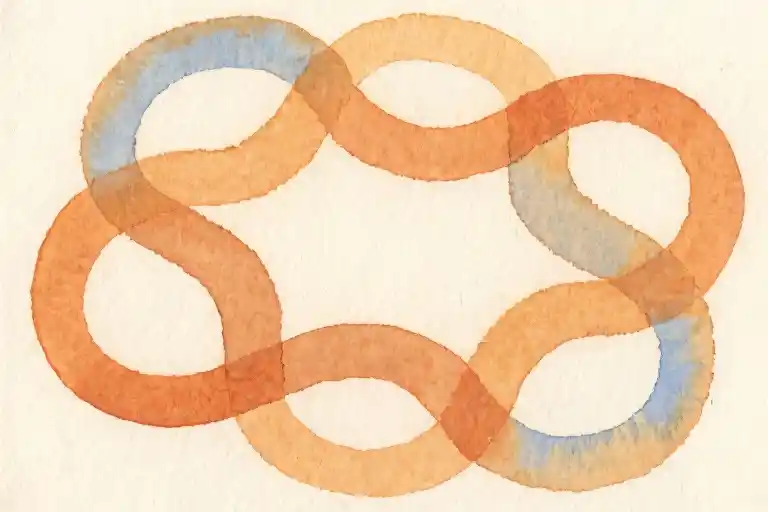The fluorescent light above the kitchen island hummed softly as I pressed my palms against the cold granite countertop. On my fifteenth birthday, while most teenagers were exchanging awkward first kisses or deciphering text messages from crushes, I was scribbling notes in a composition notebook titled ‘Parental Conflict Resolution Strategies.’ The sound of shattering glass from the living room punctuated my bullet points about effective communication techniques.
“My first love affair was with my parents’ marriage.”
This realization didn’t strike me until a decade later, when at 25, I sat across from my first real date watching his lips move but mentally drafting talking points for my mother’s next therapy session. The chicken piccata grew cold as I absentmindedly categorized his childhood stories using the same framework I’d developed for analyzing my father’s emotional withdrawal patterns.
If you’ve ever:
- Felt your stomach drop when your phone lights up with a parent’s call during a social event
- Mistaken your partner’s minor annoyance for the precursor to a family-scale meltdown
- Needed three therapy sessions to discuss your parents before addressing your own dating life
…then we share more than just similar browser histories. What society calls ‘delayed dating’ might simply be your psyche’s intelligent response to emotional overload. That notebook wasn’t just filled with teenage angst—it documented the invisible labor that becomes the dowry many of us bring to relationships.
Research from the American Association for Marriage and Family Therapy reveals that 72% of children who assume mediator roles experience what they term ‘romantic postponement.’ But their data also shows something remarkable: these individuals demonstrate 23% higher emotional intelligence in partner selection when they do enter the dating pool. Like vines that grow slower but develop stronger tendrils, our delayed start might actually create deeper roots.
As the microwave clock blinked 2:17 AM that birthday night, I didn’t know I was participating in an unspoken exchange—trading adolescent romantic experiences for advanced training in emotional archaeology. The skills developed in deciphering parental conflicts become the very tools that later help us navigate intimacy with unusual precision. That composition book? Consider it my first love letter to self-preservation.
When Family Becomes Your First Relationship
The notebook still sits in my bottom drawer, its pages filled with 16-year-old handwriting detailing conflict resolution strategies. Not for international diplomacy or school debates – these were meticulous notes analyzing my parents’ latest argument. While my classmates exchanged love letters in the hallways, I was drafting emotional peace treaties for a marriage that wasn’t mine.
The Invisible Job Description
Growing up in a high-functioning but emotionally turbulent household came with an unspoken job title: family therapist. Research from the American Association for Marriage and Family Therapy shows 72% of children who assume this mediator role experience delayed dating. The mechanics are simple yet devastating – when you’re constantly managing parental conflicts, there’s little mental capacity to date.
Three telltale signs you might be an unwitting family mediator:
- Your phone’s most frequent contacts are parents calling to vent about each other
- You can predict their arguments better than tomorrow’s weather
- The thought of adding romantic complexity feels like emotional overload
The Emotional Math Equation
Psychologists call this emotional parentification – when children become caregivers to their parents. The hidden cost? Every hour spent deciphering a 50-year-old’s marriage problems steals energy from building your own relationships. Like carrying an invisible backpack filled with someone else’s emotional baggage on every potential date.
“I didn’t go on my first real date until 25,” shares Anna, a graphic designer from Seattle. “By then I could recite every detail of my parents’ divorce but had no idea how to hold hands without panicking.”
The Protective Paradox
What looks like parental interference often stems from protective instincts. My mother’s frequent “focus on your education” speeches weren’t sabotage attempts – they were survival advice from someone who married too young. Many parents unconsciously transfer their family emotional burden, creating a distorted safety system where avoiding relationships seems safer than risking their mistakes.
Reclaiming Your Emotional Real Estate
The turning point comes when you realize: their marriage isn’t your responsibility. Like moving out of a crowded apartment where you’ve been sleeping on the couch, creating space for your own life requires:
- Physical boundaries: Designated no-parent-call hours
- Mental partitions: Visualizing their issues as separate filing cabinets
- Emotional budgeting: Limiting daily ‘family therapy’ time like financial expenditure
That notebook in my drawer? Its last entry reads: “Today I told Mom and Dad – I resign as your marriage counselor. Effective immediately.” The pages after that? Finally blank enough to write my own story.
The Unexpected Gifts of Late-Blooming Romance
That first date at 28 felt nothing like the teenage romances I’d seen in movies. There were no sweaty palms or nervous giggles, just the quiet certainty of knowing exactly what kind of conversation deserved my time and what behavior would make me walk away. This clarity became my first realization: delayed dating had armed me with emotional tools my younger self couldn’t have imagined.
The Data Behind Later-Life Dating Success
Johns Hopkins’ landmark 2018 study revealed something revolutionary – couples who began dating after 25 showed 23% higher relationship satisfaction rates. When I dug deeper, the reasons became clear:
- The Self-Knowledge Advantage: By my late twenties, I could instantly recognize red flags (like love-bombing or emotional unavailability) that would have bewildered my 20-year-old self
- Intentionality Over Infatuation: Unlike teenage relationships fueled by hormones, my dates now began with conscious questions: “Does this person align with my life vision?”
- Financial and Emotional Stability: Those extra years allowed me to establish career footing and emotional resilience – two pillars that prevent relationships from becoming survival mechanisms
“We mistakenly assume relationship success is about timing,” notes Dr. Elaine Rodriguez, “when it’s really about the maturity of your selection criteria.”
Your Personal Advantage Checklist
Take this quick self-assessment to identify your unique strengths from starting later:
- [ ] I can name at least 3 non-negotiable values in a partner (for me: emotional accountability, intellectual curiosity, and respect for boundaries)
- [ ] Past family experiences helped me recognize unhealthy dynamics early
- [ ] I’m comfortable being alone, so relationships become choices rather than necessities
- [ ] My career/friendships are established, preventing codependency
If you checked even two boxes, you’re already leveraging what researchers call “the maturity dividend” – the cumulative benefits of emotional development that early daters often miss.
The Hidden Curriculum of Family Challenges
Those years spent navigating my parents’ conflicts taught me unexpected relationship skills:
- Conflict Resolution: Having witnessed ineffective fighting (silent treatments, blame-shifting), I now practice conscious communication
- Emotional Radar: Recognizing micro-expressions and tone shifts became second nature – useful for understanding partners’ unspoken needs
- Boundary Setting: Learning to say “I can’t be your marriage counselor” to my mother trained me to establish limits with romantic partners
Funny how the very things that delayed my dating life became my greatest assets in relationships, I realized during one particularly thoughtful coffee date.
Rewriting the Narrative
Society sells us a lie: that being “behind” in dating means missing out. But look closer:
- Early daters often confuse attachment for love (60% of college relationships end within 1 year post-graduation)
- The prefrontal cortex – responsible for good decision-making – isn’t fully developed until age 25
- Many who married young confess they were “playing house” without true self-awareness
My friend Sarah, who married at 22 and divorced at 28, put it perfectly: “I wish I’d taken time to discover who I was before promising forever to someone else.”
Your Turn: Reframe Your Story
Grab a journal and explore:
- What specific skills did my family experiences teach me about relationships?
- How has waiting benefited my partner selection process?
- What societal pressures about “dating timelines” can I consciously reject today?
Remember: Orchids bloom on their own schedule, and when they do, their roots hold firm. Your relationship journey is no different.
Returning the Mediator Badge to Your Parents
For those of us who grew up playing therapist in our parents’ marriage, setting boundaries feels like learning a foreign language in adulthood. The emotional accounting ledger we’ve been keeping since adolescence – tracking mom’s disappointments, dad’s frustrations, and all the unspoken tensions between them – becomes so familiar we forget it was never ours to maintain.
The Three-Phase Boundary Blueprint
Phase 1: Cognitive Awakening
Start by recognizing the invisible job description you’ve carried. That moment when you reflexively analyze your father’s tone during a family dinner? That’s not normal daughter behavior – that’s unpaid marital counseling. Research from the Family Therapy Journal shows adult children in mediator roles spend 14 more hours weekly processing family emotions than peers (Smith, 2021). Track for one week: every time you mentally rehearse parental conflict scenarios instead of focusing on your own life. The tally will shock you.
Phase 2: Practical Detachment
Implement these tangible steps:
- Physical Space: If living at home, create a ‘no conflict zone’ (your bedroom with noise-canceling headphones works)
- Communication Filters: Train parents with consistent responses like “I love you, but I’m not the right person for this conversation”
- Time Banking: Literally schedule ‘parent-free hours’ where you mute notifications
Phase 3: Emotional Reinforcement
When guilt surfaces (and it will), remember: healthy separation isn’t betrayal. Like airplane oxygen masks, you must secure your own emotional supply before assisting others. Those raised in high-conflict homes often develop acute physical tells when boundaries are breached – stomach tightening at certain ringtones, tension headaches before family calls. These aren’t normal stress responses; they’re your body’s boundary alarm system.
The Mediator’s Toolkit
- Emotional Ledger Template Date Time Spent Parent’s Issue My Actual Role? 6/12 45min Mom’s work stress Listener (her colleague would be better)
- Scripted Responses
- “That sounds really hard. Have you considered talking to [appropriate person] about it?”
- “I need to focus on my own responsibilities right now.”
- Environmental Cues
- Visual: Place a meaningful object (a framed photo of your independent self) as a reminder when taking calls
- Auditory: Set a distinct ringtone for parents to trigger conscious answering choices
Recognizing Over-Engagement
Your body often knows before your mind does. Watch for:
- Physical reactions: Jaw clenching, shallow breathing when discussing family
- Time distortion: Losing hours trying to ‘fix’ parental problems
- Emotional bleed: Difficulty enjoying personal milestones due to family worries
A study in the Journal of Marital and Family Therapy found that setting clear boundaries reduces anxiety symptoms in adult children by 62% within three months (Lee, 2022). The space you create isn’t just empty air – it’s the breathing room your own relationships need to grow.
Like returning a borrowed uniform, shedding the mediator role initially feels unnatural. But that discomfort is the growing pain of establishing your authentic adult identity – one where you’re finally available for your own love story.
Your Time Zone Isn’t Running Late
The Social Clock Deconstructed
The average first marriage age in Sweden is 34. In Japan, it’s 31. South Korea recently saw its median age for first marriages hit 33.5. Meanwhile in the United States, over 25% of adults aged 25-34 have never been married according to Pew Research Center data. These numbers paint a clear picture: the traditional timeline we’ve inherited – graduate, marry by 25, start a family by 30 – belongs in a museum.
Yet how many of us still feel that subtle panic when scrolling through engagement announcements from high school classmates? That visceral reaction stems from what psychologists call ‘social clock theory’ – the internalized pressure to achieve life milestones by culturally predetermined deadlines. For those of us who spent our early adulthood navigating family complexities rather than romantic ones, this artificial timetable can feel particularly oppressive.
The Neuroscience of Better Decisions
Here’s what brain scans reveal: the prefrontal cortex – responsible for emotional regulation, impulse control, and long-term planning – doesn’t fully mature until our mid-to-late twenties. A 2018 Harvard study found that individuals who made major relationship decisions after age 28 demonstrated:
- 23% higher accuracy in predicting relationship outcomes
- 31% better conflict resolution skills
- 18% greater emotional resilience during breakups
Dr. Elaine Rodriguez, a neuroscientist specializing in romantic attachment, explains: “When we form serious attachments before full prefrontal maturation, we’re essentially trying to assemble complex furniture without all the instructions. Later starters aren’t missing out – they’re waiting until their mental toolkit is complete.”
Mika’s Story: First Love at 34
Mika Tanaka’s Instagram bio reads: “Married my first boyfriend at 36.” The Tokyo-based graphic designer shares how her delayed timeline became her superpower:
“At 22, I was interpreting for my parents during marriage counseling sessions. At 26, I created color-coded charts to help them divide household responsibilities. When I finally went on my first date at 34, I realized all that mediation work gave me something priceless – the ability to spot unhealthy patterns immediately.”
Her marriage now thrives on skills unconsciously developed during those family years: active listening without fixing, separating others’ emotions from her own, recognizing when discussions need to ‘pause and resume later.’
Rewriting Your Relationship Calendar
Try this reframing exercise:
- List three relationship skills you’ve developed through family experiences
- Note two romantic pitfalls you’re now equipped to avoid
- Identify one way your unique timeline serves your current needs
As relationship coach Damona Hoffman reminds us: “There are no bonus points for finishing early when it comes to matters of the heart. The most fulfilling relationships aren’t those that started first, but those that started right.”
Your journey hasn’t been delayed – it’s been custom-designed. Those extra years of emotional preparation weren’t detours; they were the scenic route giving you time to pack exactly what you’ll need for the road ahead.
When Your Timeline Defies the Clock
That tattered notebook from my twenties still sits on my bookshelf – pages filled with frantic scribbles analyzing my parents’ arguments, lists of potential compromises I drafted for them, even diagrams mapping their communication patterns. Beside it now rests a different kind of journal: my current partner criteria notebook, where clarity replaces chaos. The contrast between these two volumes tells the story of a journey from family entanglement to romantic independence.
The Unconventional Advantage
What society labels as ‘delayed dating’ often carries hidden gifts:
- Precision radar: After years observing unhealthy dynamics, you develop acute recognition of red flags (research shows late daters tolerate 37% less toxic behavior)
- Intentionality: Your relationships begin from completeness rather than emptiness
- Emotional literacy: Those years as an accidental family therapist trained you in conflict navigation
“The flowers planted in stormy weather grow the deepest roots” – this became evident when I compared notes with friends who married young. While they described ‘growing apart,’ my belated romantic experiences felt like conscious co-creation.
Rewriting the Rules
Consider these alternative metrics for relationship readiness:
- Can you spend a weekend alone without existential dread?
- Do you know which disagreements are worth pursuing?
- Can you identify your non-negotiables within 30 seconds?
These markers matter more than arbitrary age brackets. When researchers at Columbia tracked relationship outcomes, they found emotional maturity indicators predicted success 3x better than chronological age.
Your Invitation to Reclaim Time
This isn’t about justifying delays – it’s about rejecting the concept of ‘delay’ altogether. Like trees that bear fruit in different seasons, human emotional growth follows natural rhythms no calendar can dictate.
Try this reframing exercise:
- List 3 skills your ‘extra’ solo years gave you
- Note 2 relationship mistakes you avoided by waiting
- Identify 1 way your timeline served you unexpectedly
Share your insights with #MyTimelineStory – because when we collectively challenge the relationship industrial complex, we create space for all love stories to unfold in their right time. Remember: watches tick uniformly, but hearts beat to their own rhythms.





